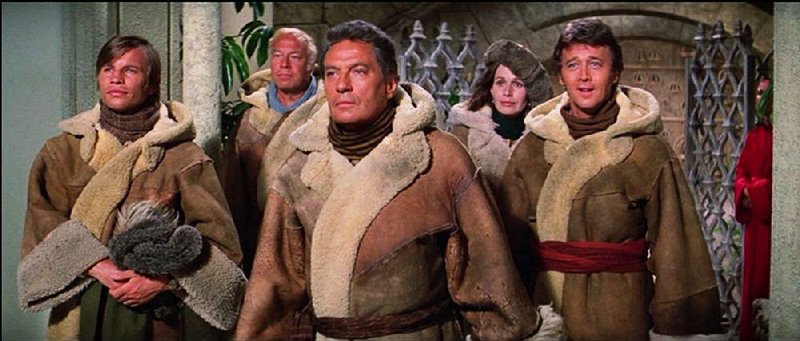This column is about bad movies. The ones that make us wince when we leave the theater. The ones that have us saying: "What were they thinking?"
Lost Horizon (1973)
Some movies are so bad they're good, as in Plan 9 From Outer Space. But this one isn't even good for camp value as was Valley of the Dolls.
For years I had read how awful this film was. So I watched it. Without the dreadful songs, it wasn't a bad film. In fact, the first 30 minutes or so are just like the 1937 original, which is a classic. It could have been great a musical, if someone else had written the songs, say Rodgers & Hammerstein, Lerner & Lowe or Mancini & Mercer. But Burt Bacharach and Hal David were clearly the wrong choices. And we know they could do musicals well, as in Promises, Promises.
The actors were OK to good: Sally Kellerman, John Gielgud and Charles Boyer being the standouts. And amazingly, only Bobby Van, Kellerman and James Shigeta sing for themselves. All the others were dubbed, and by people whose voices didn't match the stars they were dubbing. I guess Marni Nixon was unavailable.
Also, Peter Finch was old enough to be Michael York's father instead of his brother as he plays in this film. So that was a bad call in casting. And neither were singers. Nor dancers.
I wanted to see a lot more of Boyer, who played the High Lama. I guess we can thank God he didn't have a song, too.
The director was Charles Jarrott, who had made some OK movies including Anne of a Thousand Days and Mary, Queen of Scots. But also, Condorman and The Other Side of Midnight, which were not good films.
The musical numbers were staged by legendary choreographer Hermes Pan, who must have lost his touch by 1973. Having actors who can't dance prancing around "singing" terrible songs does not a musical make.
This from IMDb: In a letter to his partner Paul Anstee in April 1972, Gielgud wrote: "The film is going to cost 6 million dollars, so let's hope the music will be the making of it -- nothing else will! I have christened it Hello, Dalai!"
Also from IMDb, producer Ross Hunter, who knew how to stage a musical (Flower Drum Song, I'd Rather Be Rich, Thoroughly Modern Millie) said in an interview with Rona Barrett, that he didn't know Bacharach and Hal David were in the process of dissolving their songwriting partnership. "When they finally delivered the music, we were already deep in pre-production. We knew it was a bum of a score, but we couldn't do anything about it."
The screenplay was written by noted playwright and LGBT activist Larry Kramer, who said he wasn't very proud of the script. But the paycheck and the investments he made were so lucrative that he wouldn't have to worry about making a living for the rest of his life.
Also from IMDb: John Gielgud's letters, published in 2004, make several references to the filming. To Dame Edith Evans he wrote in April 1972: "The part is an idiotic walkabout, not a moment that gives one the slightest opportunity to act and I feel a bit ashamed of the bribery that makes me accept it. But I had a bad income tax disaster three years ago and this should help to put me straight again." Elsewhere he describes Chang as "a very stupid part" and that his costume and shaved head made him feel like a Tibetan version of Portia in the trial scene from The Merchant of Venice "with a hint of Von Stroheim's grandson by Yul Brynner."
So many backers, according to IMDb, lost at least half of their investments that the movie became known in the industry as The Lost Investment.
The final tally for the film in 1973 was $12 million, which today would be about $69 million. The box office take was only about $3 million.
Too bad Columbia didn't release two versions: one as a drama and one as a musical.
MovieStyle on 09/06/2019
